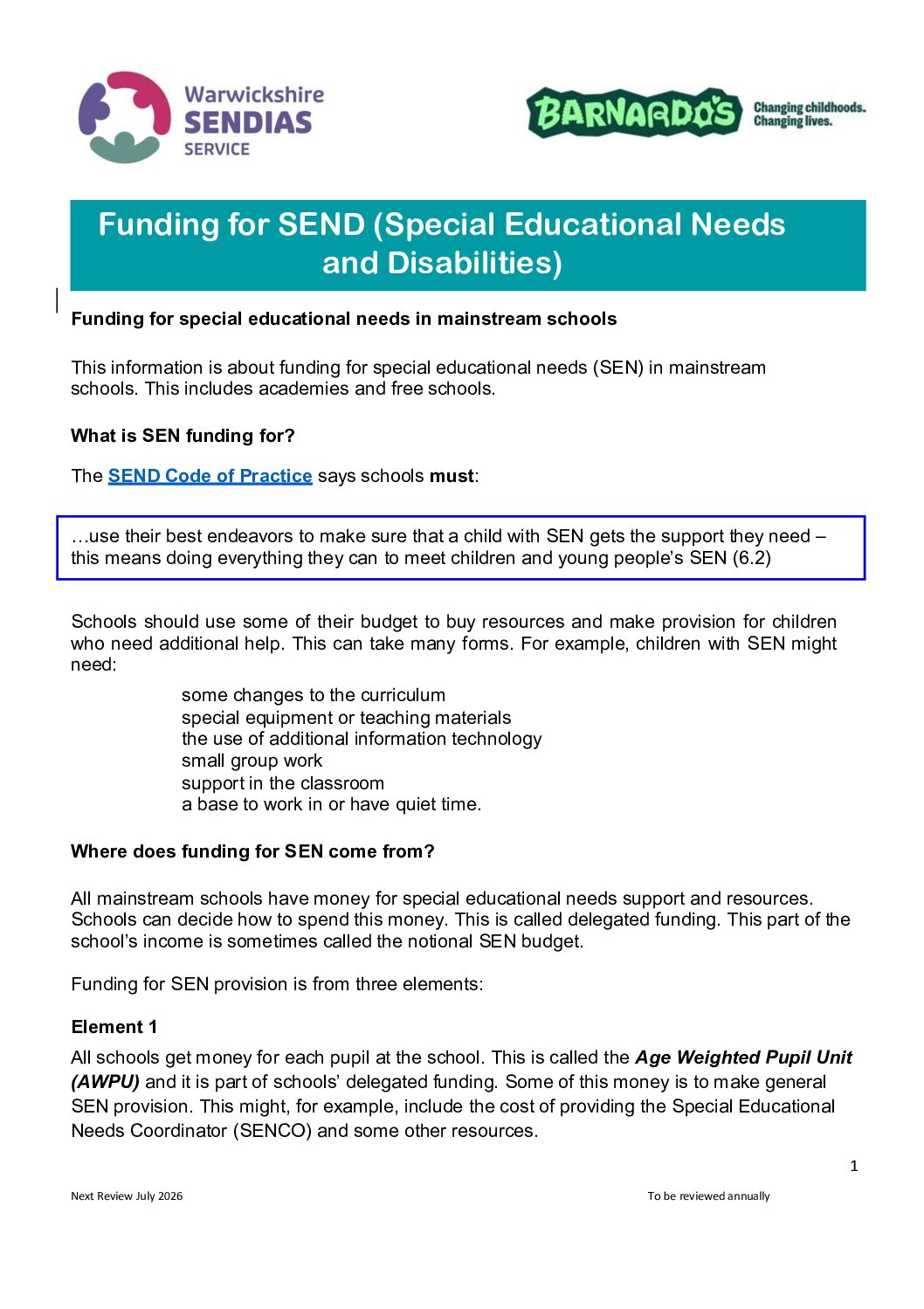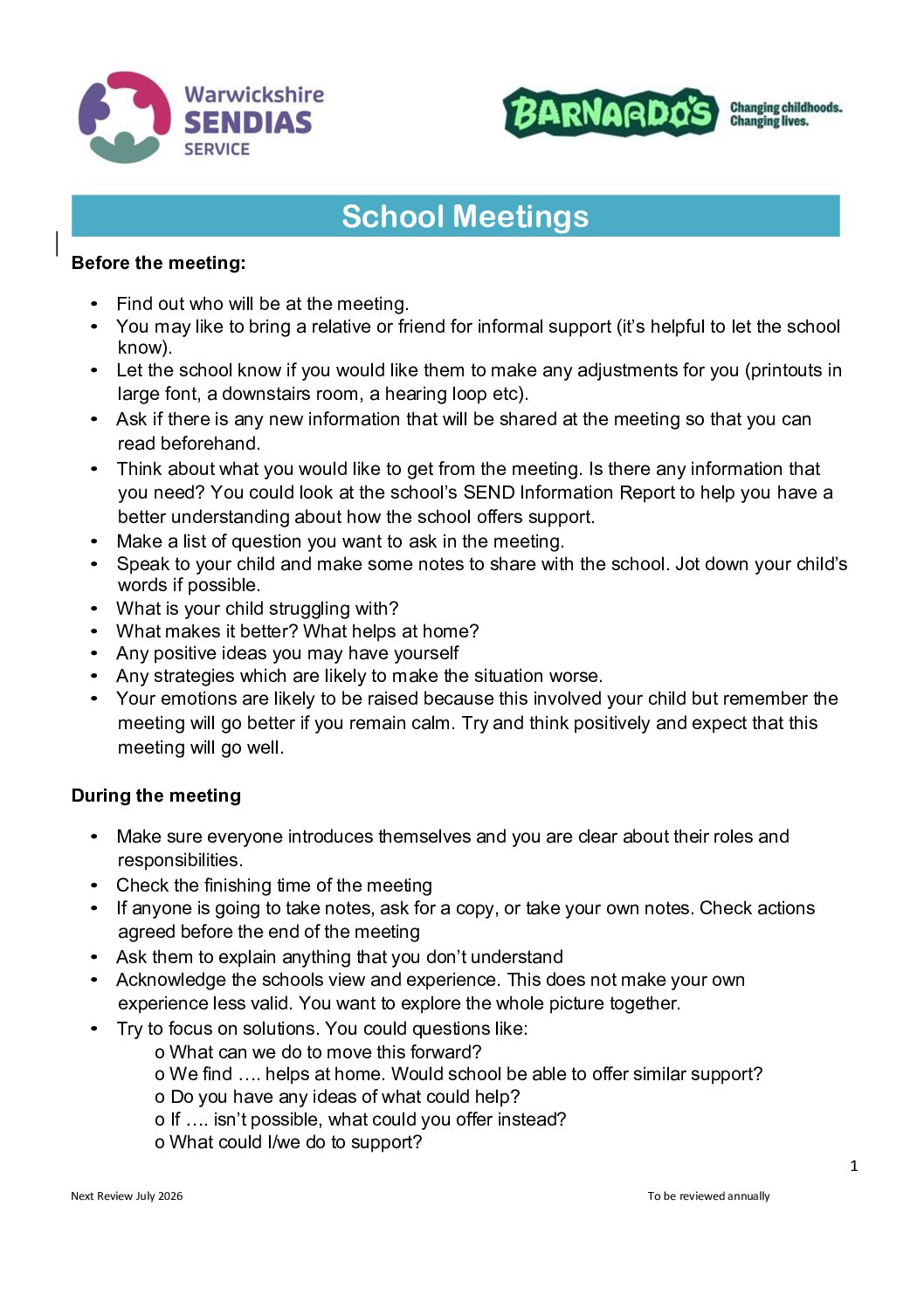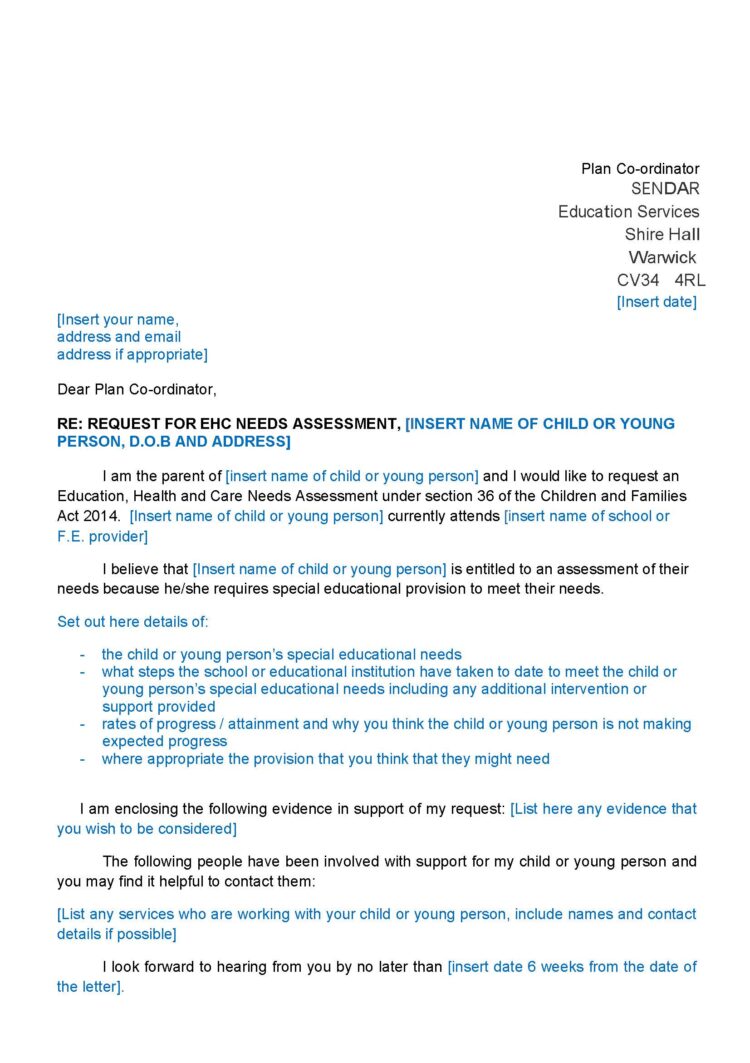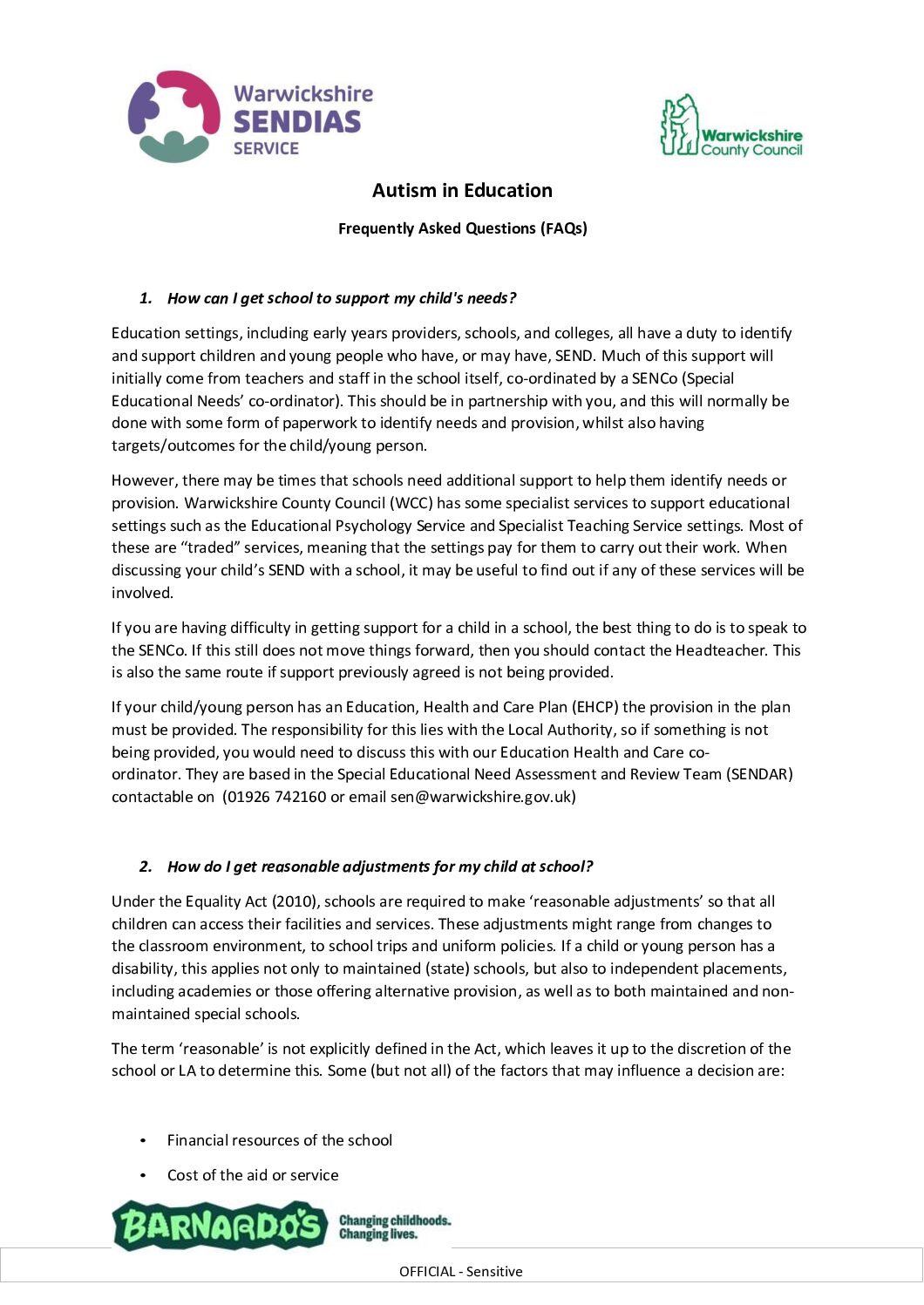PDF 244.48 KB
 Funding for SEND - Warwickshire 1
Funding for SEND - Warwickshire 1
Funding for SEND - Warwickshire 1
Funding for SEND - Warwickshire 1
 School Meetings - Warwickshire
School Meetings - Warwickshire
School Meetings - Warwickshire
School Meetings - Warwickshire
School Meetings
Before the meeting:
During the meeting
Following the meeting you should know:
If, after the given timescales, the situation has not improved:
If you are not happy, you can speak to:
PDF 244.48 KB
 Funding for SEND - Warwickshire 1
Funding for SEND - Warwickshire 1
Funding for SEND - Warwickshire 1
Funding for SEND - Warwickshire 1
PDF 62.07 KB
 Template_Parental_Request_Letter_-v2_ amended
Template_Parental_Request_Letter_-v2_ amended
Template_Parental_Request_Letter_-v2_ amended
Template_Parental_Request_Letter_-v2_ amended
Useful template letter with prompts for parents or carers (with parental responsibility) and young people to request an EHC Needs Assessment.
PDF 299.17 KB
 WCC Autism FAQs (3)
WCC Autism FAQs (3)
WCC Autism FAQs (3)
WCC Autism FAQs (3)